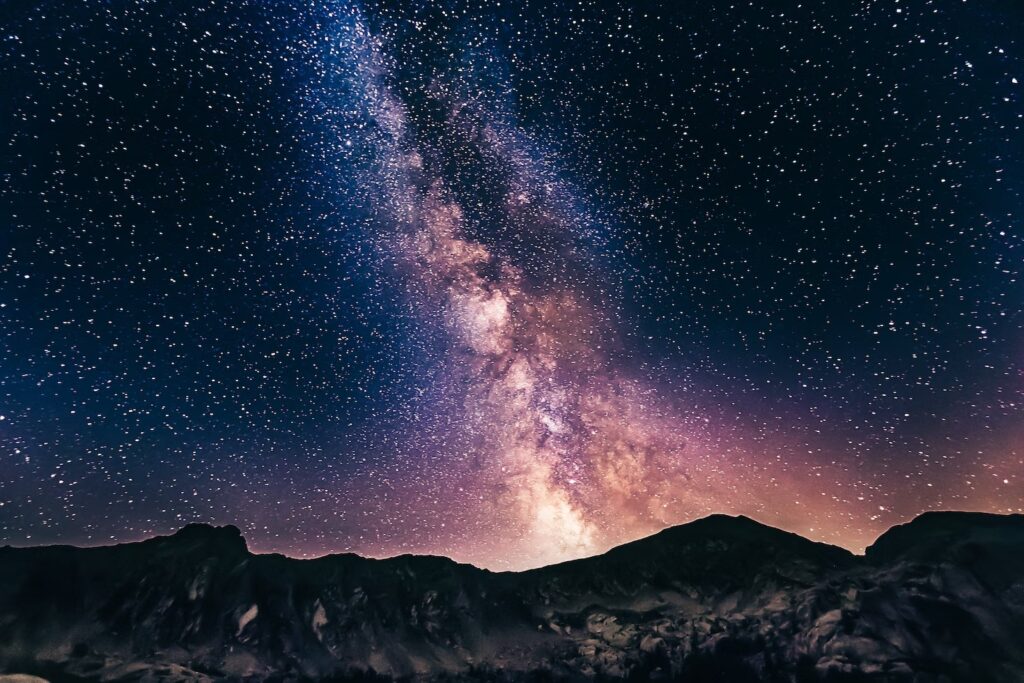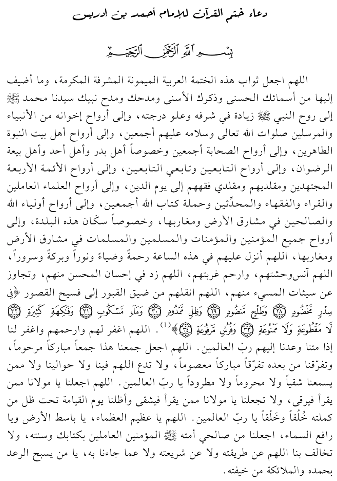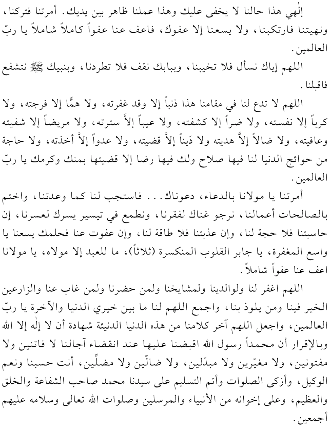
Entering into the last ten days of Ramadan, a common question that is raised by people is often: “When is Laylat al-Qadr (the Night of Power)?”
The reality is – we do not know, and that’s for the best.
It is clear from the sunna of the Prophet, alayhi salat wa salam, that he would exert himself more during the last ten days of Ramadan than what he did in other times. A hadith from Sayyida Aisha, reported in the Musnad of Imam Ahmad, notes: “The Messenger of God used to combine the first twenty nights with worship and sleep. But when it was the last ten nights, he would strive hard and tighten his loincloth.” In other hadiths, narrated by Abu Dharr and Sayyidina Ali, it’s noted that the Messenger of God would wake his family up particularly during the last ten nights of Ramadan to engage in worship. Imam Sufyan al-Thawri, one of the great mujtahid imams, said, “At the commencement of the last ten nights, I consider it desirable for a person to offer the tahajjud salah, strive hard in worship, and awaken his family and children for salah if they are able to perform it.”
Clearly, the salaf considered the last ten nights to be special. Some of them used to take a ghusl on every night of the last ten nights; others would also put on perfume during those nights in particular, similar to how many of the salaf would engage with the nights of Eid and the night of Jumma’.
All of this is indicative of seeking out the night of Power most particularly during the last ten nights of Ramadan – but without a set night being established for the night of Power. There’s a great deal in the sunna indicated the importance of the night; that deeds on that night are better than deeds done at other times for 1000 months; that the person who engages in night worship on the night of Power with faith and expectation of reward shall have his past sins forgiven, as per the hadith of the Prophet (recorded by the shaykhan); but in terms of precisely when it is, it’s not designated with certainty on any particular night.
Rather, as Imam Abd Al-Rahman b. Ahmad b. Rajab al-Hanbali notes, there is evidence for the night of Power on many nights; and particularly a lot of evidence in the last ten nights of Ramadan. A narrative in al-Bukhari notes, “[Seek it] on the odd nights of the last ten nights of Ramadan”; another hadith from Ibn Abbas indicates, “Seek it in the last ten nights of Ramadan; the 9th which remains, the 7th which remains, the 7th which remains, and the 5th which remains.” Another hadith narrated from Abu Bakrah indicates the Prophet said, “Seek it on the 9th which remains, the 7th which remains, the 5th which remains, the 3rd which remains, or on the last night.” There is also additional evidence indicating that he, alayhi salat wa salam, encouraged people to seek it in the last 7 nights in particular.
With all the evidence in mind, we see that the scholars had a myriad of opinions as to when the night of Power takes place; some of them (according to Ibn Rajab) are included here:
1. It has been been attributed to Ibn Mas’ud that it occurs throughout the year;
2. Imam Abu Hanifah and the majority of scholars say it occurs in Ramadan;
3. There are those who say it occurs any time in Ramadan;
4. Others say it occurs on the first night of Ramadan;
5. Others say it occurs in the second half of Ramadan;
6. Imam Abu Yusuf and Imam Muhammad al-Shaybani say it is on the night of the full moon;
7. The majority of scholars indicates it is confined to the last ten nights;
8. Al-Hasan and Imam Malik, and some Hanbali scholars say it should be sought in all of the ten nights;
9. Many more scholars than this last group, nevertheless, say there is more likelihood, in general, of the night of Power occurring in the last odd nights.
10. Imam al-Shafi’i said it should be sought on the 21st and the 23rd nights (this is also related from Imam Ali and Ibn Mas’ud)
11. Another opinion of Imam al-Shafi’i is that it was most likely to be the 23rd night, and this is also the opinion of the folk of Madinah. Imam Sufyan al-Thawi narrates that as well from the folk of Makkah and Madinah, and it is also related that Ibn Abbas and Sayyida Aisha were from among those who would awaken their families on this night. There is some other evidence from the sunna about the 23rd, and Allah knows best.
12. Other scholars gave precedence to the 24th night, including al-Hasan.
13. Others still give precedence to the 27th night; that is the opinion of Imam Ahmad b. Hanbal, and narrated from a number of the companions, including Sayyidina Omar. There are a number of ahadith that are the basis for this opinion.
14. Nevertheless, others still are reported as having the opinion that the night moves around in the last ten nights, including the great student of Imam al-Shafi’i, Imam al-Muzani. (Ibn Abd al-Barr narrates that this was also an opinion held by Imam Malik, Imam al-Thawri, Imam al-Shafi’i and Imam Ahmad b. Hanbal, and Allah knows best.)
============
So, take full advantage of these nights. Do your recitations of the Qur’an; pray extra nawafil of salat; and perhaps most of all, engage in du’a. Our teachers relayed to this to read the following in particular, especially the first dhikr, which is what the Prophet specifically told Sayyida Aisha to do if she thought it was the night of Power:
- اللَّهُمَّ إِنَّكَ عُفُوٌّ كَرِيمٌ تُحِبُّ الْعَفْوَ فَاعْفُ عَنِّي
- اللهمّ إنا نسألك العفو والعافية والمعافاة الدائمة في الدين والدنيا والآخرة
- لا اله الا الله الحليم لااله الا الله العلي العظيم سبحان الله رب السموات السبع ورب الارضين السبع ورب العرش العظيم
- آية الكرسى
=============
There are many supplications that are narrated by the righteous that may be recited at the end of reciting a full reading of the Qur’an. During Ramadan, what one might consider doing is to time the final reading of the last part of the Qur’an you have left until the night; and preferably one of the odd nights, so that your khatm coincides with one of the special nights during the month. Then, make du’a. The below is the du’a narrated by one of the great scholars and sages of the ummah, Ahmad b. Idris of Morocco.


May Allah allow us to be those who reach the night of Power, and be counted among those who took its full blessing, on the night of its occurrence, and every night in the year, ya Rabb!
